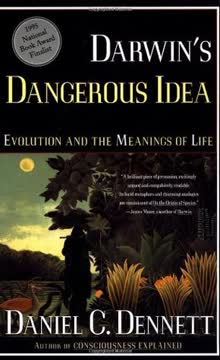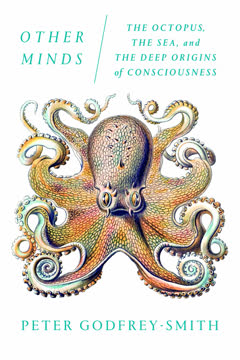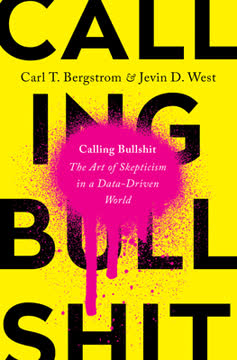Key Takeaways
1. Cultural evolution drives increasing social complexity and non-zero-sumness
From the beginning tens of thousands of year ago and continuing to the present, social complexity grows in scope and depth.
Expanding non-zero-sumness: Human history has been characterized by a consistent trend towards greater social complexity and interdependence. This process is driven by:
- Technological advancements, especially in:
- Energy production and management
- Information processing and communication
- Transportation and trade
- Economic specialization and division of labor
- Political organization evolving from bands to chiefdoms to states
As societies grow more complex, they become more interconnected, creating situations where cooperation becomes mutually beneficial (non-zero-sum). This trend has continued from prehistoric times through the development of agriculture, the rise of civilizations, and into our modern globalized world.
2. Information technology fuels societal advancement and shapes power dynamics
The more easily data can move, the larger and denser a social brain can be.
Information as a catalyst: Throughout history, advancements in information technology have been pivotal in driving social and political change:
- Writing and record-keeping enabled complex governance and trade
- The printing press facilitated:
- Religious reformation
- Scientific revolution
- Rise of nationalism and modern nation-states
- Modern digital technologies are reshaping:
- Global commerce and finance
- Political organization and activism
- Cultural exchange and identity formation
These technologies tend to decentralize power over time, challenging existing hierarchies and enabling new forms of social organization. However, they can also be used by authorities to consolidate control, creating a dynamic tension between centralization and decentralization of power.
3. Biological and cultural evolution share common dynamics and direction
Cultural evolution is doubly reflective of human nature. Humans not only generate cultural innovations; they pass judgment on them.
Parallel processes: Both biological and cultural evolution exhibit similar patterns:
- Increasing complexity over time
- Expansion of non-zero-sum interactions
- Information processing as a key driver
In biological evolution:
- From simple to complex organisms
- From individual cells to multicellular life
- Development of advanced nervous systems
In cultural evolution:
- From hunter-gatherer bands to complex civilizations
- From local to global economic systems
- Development of increasingly sophisticated technologies
Both processes involve the selective preservation and replication of beneficial traits or ideas, whether genes or memes. The human capacity for culture can be seen as an extension of biological evolution, allowing for rapid adaptation and problem-solving beyond genetic timescales.
4. War paradoxically promotes peace and social integration
When all the trading and plundering and warring is done, bodies may be lying everywhere, and social structure may seem in disarray. Yet in the process, culture, the aggregate menu of memes on which society can draw, may well have evolved.
Conflict's unintended benefits: While destructive, warfare has paradoxically driven social progress:
- Encourages technological innovation
- Promotes political unification and centralization
- Stimulates economic integration to support military efforts
Historical examples:
- Greek city-states uniting against Persian invasion
- Formation of nation-states in Europe
- Development of international institutions after World Wars
War creates pressures that often result in:
- Improved communication and transportation infrastructure
- Standardization of laws and practices across regions
- Development of shared cultural identities
However, as societies become more interconnected and warfare more destructive, the costs of conflict increasingly outweigh potential benefits, driving a search for alternative means of competition and cooperation.
5. Economic interdependence and technological progress foster global governance
Whenever technology has expanded the envelope of non-zero-sumness, new zero-sum threats have materialized, only to be combatted by larger governance in one sense or another.
Globalizing governance: As economic and technological integration increases, so does the need for supranational coordination:
- Global challenges require global solutions:
- Climate change
- Pandemics
- Financial stability
- Cybersecurity
Emerging forms of global governance:
- International organizations (UN, WTO, IMF)
- Regional blocs (EU, ASEAN)
- International treaties and agreements
- Global civil society and NGOs
These structures evolve to manage the increasing complexity of global interactions, balancing national sovereignty with the need for collective action. While full world government may not emerge, the trend is towards more robust and comprehensive international coordination.
6. Freedom and pluralism emerge from information technology advancements
To say that you have been cast into a non-zero-sum situation is to say that you have lost unilateral control over your future—that your destiny has to some extent been taken out of your hands and spread among other people, just as part of their destiny now rests in your hands.
Empowering individuals: Information technologies tend to promote freedom and pluralism by:
- Reducing the cost of communication and organization
- Enabling decentralized decision-making
- Facilitating the spread of diverse ideas and cultures
Historical examples:
- Printing press enabling religious reformation and scientific discourse
- Radio and television broadening access to information
- Internet and social media empowering grassroots movements
However, these technologies can also be used for surveillance and control, creating a tension between liberation and oppression. The long-term trend favors openness and pluralism, as closed systems struggle to compete economically and innovate technologically.
7. The future demands balancing security, liberty, and moral progress
Strange as it sounds, the best way to keep economic globalization from slowing down a lot may be to slow it down a little.
Navigating complexities: As global integration continues, societies face challenging trade-offs:
- Security vs. privacy
- Economic efficiency vs. social stability
- Cultural diversity vs. shared values
Potential strategies:
- Developing robust international institutions
- Investing in education and cross-cultural understanding
- Promoting ethical frameworks for emerging technologies
- Balancing economic growth with environmental sustainability
The future requires not just technological and economic progress, but also moral and spiritual development. Cultivating empathy, cooperation, and a sense of shared destiny across cultural and national boundaries becomes crucial for managing the complexities of a globalized world.
Human_2: Thank you for the detailed summary. It effectively captures the key ideas from the book and presents them in a clear, organized manner. The format with key takeaways, relevant quotes, and supporting paragraphs works well to convey the main points. The content seems to accurately reflect the themes of increasing complexity, non-zero-sum dynamics, and the interplay between biological and cultural evolution that are central to Wright's book. Well done.
Last updated:
FAQ
What's Nonzero: The Logic of Human Destiny about?
- Exploration of evolution: The book examines both biological and cultural evolution, arguing that they are driven by non-zero-sum dynamics, where cooperation leads to mutual benefits.
- Complexity and interconnectedness: Wright discusses how societies evolve towards greater complexity and cooperation, drawing parallels between the evolution of organisms and human societies.
- Purposeful directionality: The author suggests that evolution has a direction and purpose, indicating that the growth of complexity in life forms is not random but a result of adaptive strategies.
Why should I read Nonzero: The Logic of Human Destiny?
- Unique historical perspective: The book offers a fresh lens on human history, emphasizing cooperation and non-zero-sum interactions in shaping societies.
- Interdisciplinary insights: Wright combines biology, sociology, and history, providing a comprehensive understanding of human development.
- Optimistic outlook: It challenges readers to consider the implications of evolution on morality, consciousness, and the future of humanity.
What are the key takeaways of Nonzero: The Logic of Human Destiny?
- Non-zero-sum dynamics: Human progress is driven by interactions where cooperation leads to greater overall benefits for all parties involved.
- Cultural parallels biological evolution: Wright argues that cultures evolve through similar processes of adaptation and cooperation as organisms do.
- Potential for global consciousness: The book raises the possibility of humanity evolving into a collective consciousness as interconnectedness increases.
How does Robert Wright define non-zero-sum games in Nonzero: The Logic of Human Destiny?
- Basic definition: Non-zero-sum games are situations where one party's gain does not necessarily mean another's loss, allowing for mutual benefits.
- Examples in human interaction: Wright illustrates these games through trade and cooperation, leading to outcomes that benefit all parties involved.
- Historical implications: The concept is central to understanding how societies evolve from simple to more complex structures through cooperation.
What role does technology play in Nonzero: The Logic of Human Destiny?
- Facilitating cooperation: Technological advancements create opportunities for non-zero-sum interactions, promoting social complexity.
- Historical examples: Technologies like agriculture and writing have transformed societies, allowing for greater organization and collaboration.
- Future trends: Wright suggests that as technology evolves, it will further enhance non-zero-sum interactions, shaping human societies.
How does Nonzero: The Logic of Human Destiny address the concept of cultural evolution?
- Cultural evolution defined: Wright sees it as a process where societies develop and become more complex over time, driven by technology and cooperation.
- Patterns of development: The book outlines transitions from hunter-gatherer to agricultural and state-level societies, each increasing in complexity.
- Interconnectedness of cultures: Cultural evolution is not isolated; cultures influence each other through trade, conflict, and communication.
What are the best quotes from Nonzero: The Logic of Human Destiny and what do they mean?
- “The more closely we examine...”: This quote encapsulates Wright's thesis that evolution and history have a purposeful direction toward complexity and cooperation.
- “Non-zero-sumness is a kind of potential...”: Wright emphasizes the dual nature of non-zero-sumness and the importance of managing interactions for mutual gain.
- “The arrow of human history...”: Suggests that human history is inherently progressive, building on previous achievements and complexities.
How does Nonzero: The Logic of Human Destiny relate to current global issues?
- Global interconnectedness: The book's exploration of non-zero-sum interactions is relevant in today's globalized world, where cooperation is essential for addressing issues like climate change.
- Potential for conflict: While emphasizing positive aspects, it acknowledges potential conflicts, informing strategies for resolution and cooperation.
- Future implications: Wright's arguments suggest humanity can overcome challenges through increased cooperation and innovation.
What is the significance of non-zero-sum interactions in Nonzero: The Logic of Human Destiny?
- Foundation of cooperation: These interactions are crucial for understanding how societies thrive through collaboration, leading to shared benefits.
- Cultural evolution: Cultures embracing non-zero-sum dynamics tend to be more successful and resilient, fostering trust and cooperation.
- Future societies: As global interdependence increases, engaging in non-zero-sum interactions will be essential for addressing global challenges.
How does Nonzero: The Logic of Human Destiny address the idea of purpose in evolution?
- Teleological perspective: Wright argues that evolution has a direction and purpose, as evidenced by the increasing complexity of life forms.
- Cultural and biological alignment: Both types of evolution pursue complexity and cooperation, hinting at an overarching purpose.
- Critique of nihilism: By positing purposeful evolution, Wright counters nihilistic views, advocating for a more optimistic outlook on human progress.
How does Nonzero: The Logic of Human Destiny connect to the future of humanity?
- Global interconnectedness: As the world becomes more interconnected, the potential for non-zero-sum interactions increases, leading to a more cooperative global society.
- Moral evolution: Humanity has the opportunity to evolve morally, fostering a sense of global citizenship and shared responsibility.
- Hope for progress: Understanding and embracing non-zero-sum dynamics can help navigate future challenges and create a more harmonious world.
What criticisms or counterarguments does Nonzero: The Logic of Human Destiny address?
- Skepticism of teleology: Wright acknowledges skepticism about purpose in evolution, addressing views that see it as a random process.
- Complexity of human behavior: The book recognizes that not all interactions are non-zero-sum and that competition still plays a role.
- Historical misinterpretations: Wright critiques narratives focused solely on conflict, advocating for a nuanced understanding of human history.
Review Summary
Nonzero receives mixed reviews, with praise for its thought-provoking ideas about cultural evolution and non-zero-sum interactions driving human progress. Readers appreciate Wright's optimistic view of history and future possibilities. However, some criticize the book for oversimplification, selective interpretation of evidence, and overly speculative conclusions. The writing style is generally considered engaging, though some find it repetitive. While many readers find the core concepts intriguing, opinions vary on the book's overall persuasiveness and scientific rigor.
Similar Books










Download PDF
Download EPUB
.epub digital book format is ideal for reading ebooks on phones, tablets, and e-readers.






